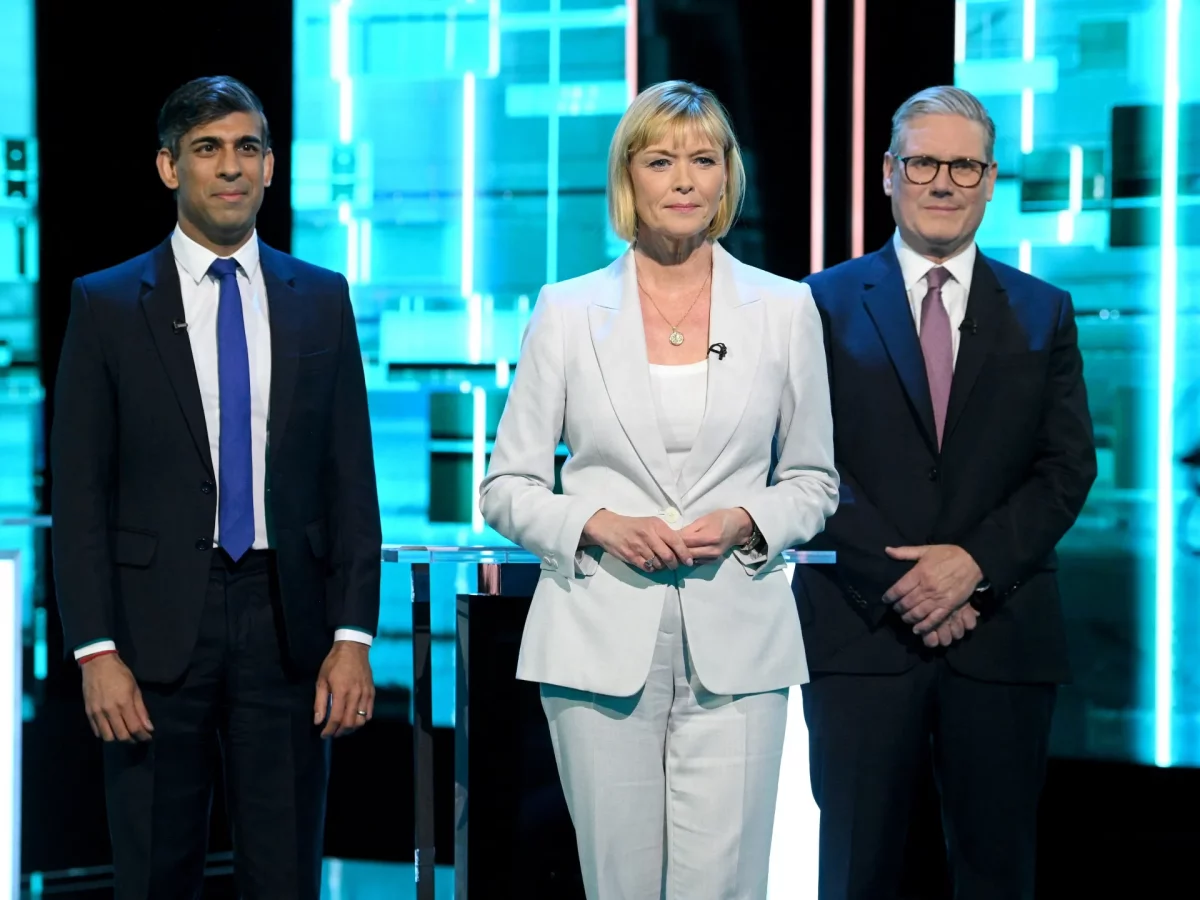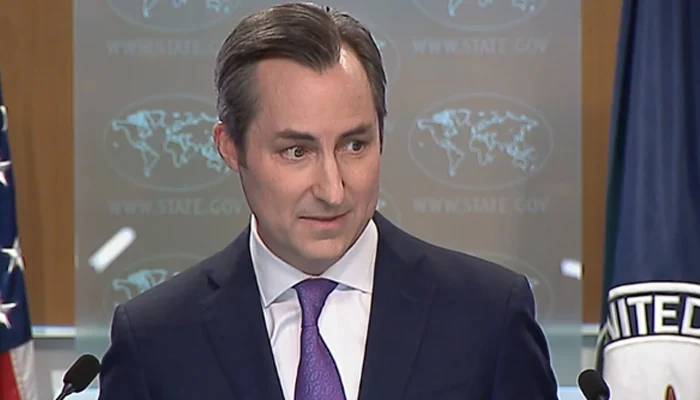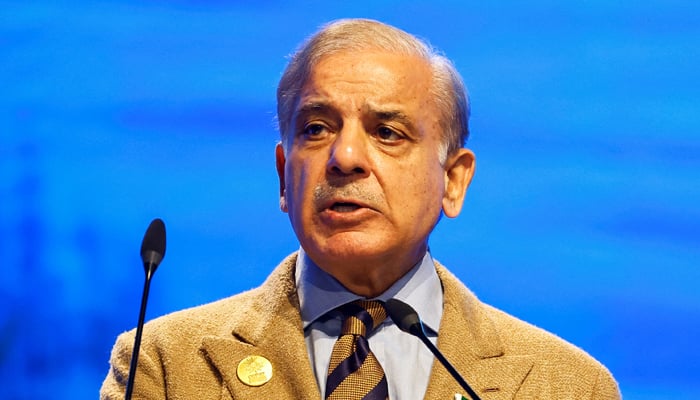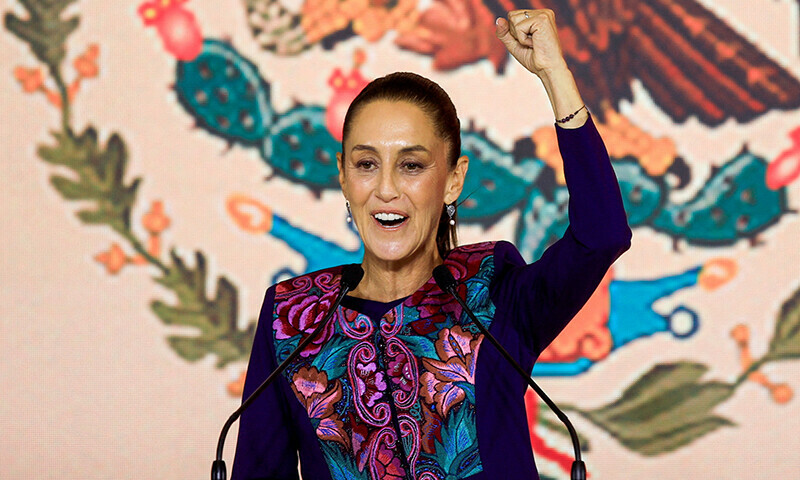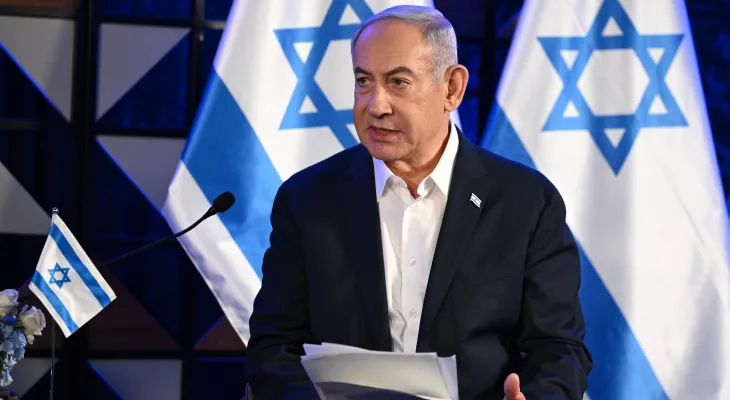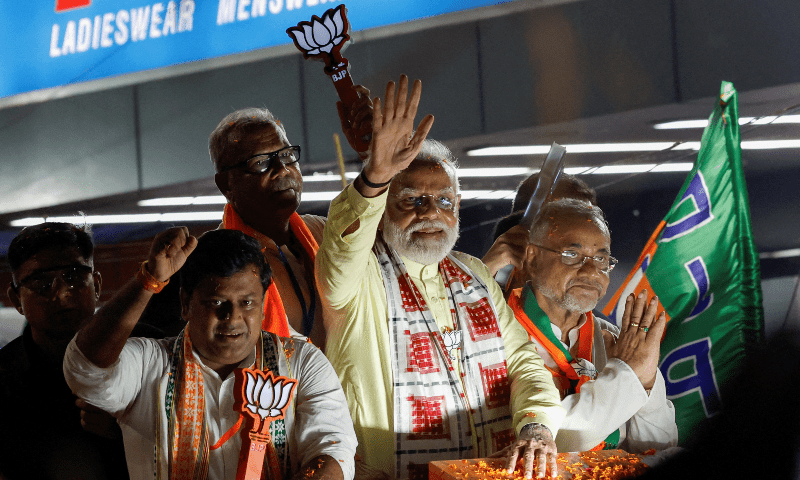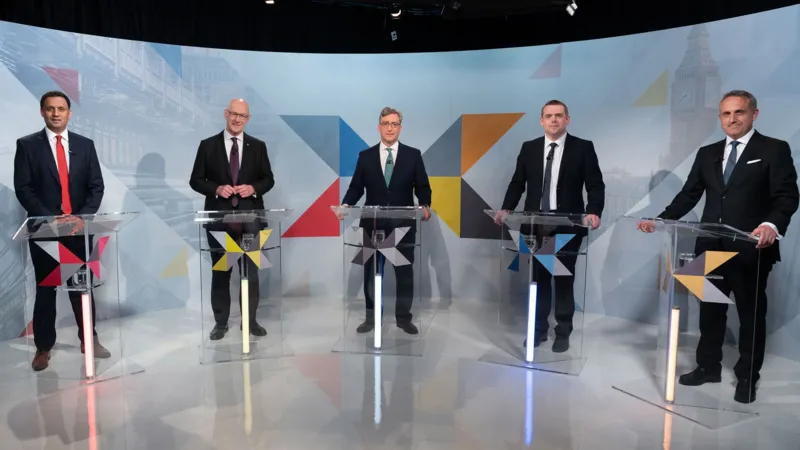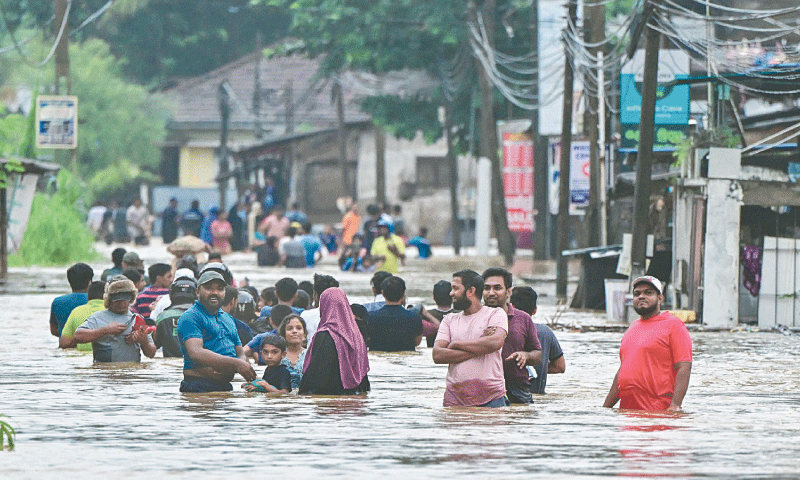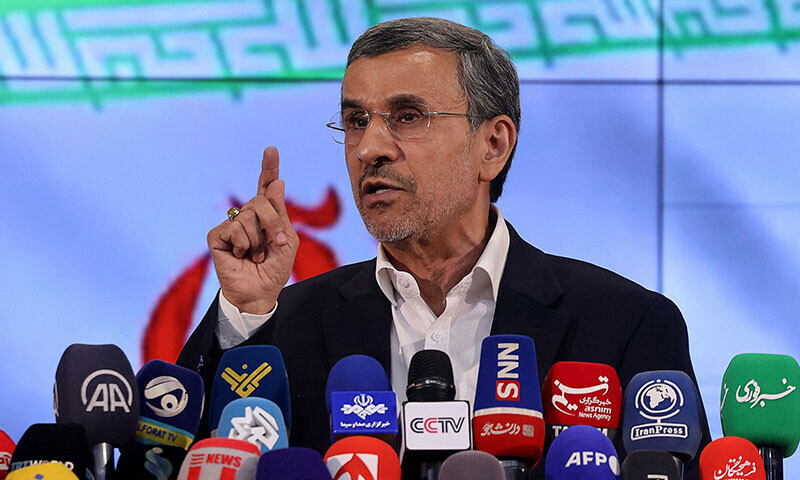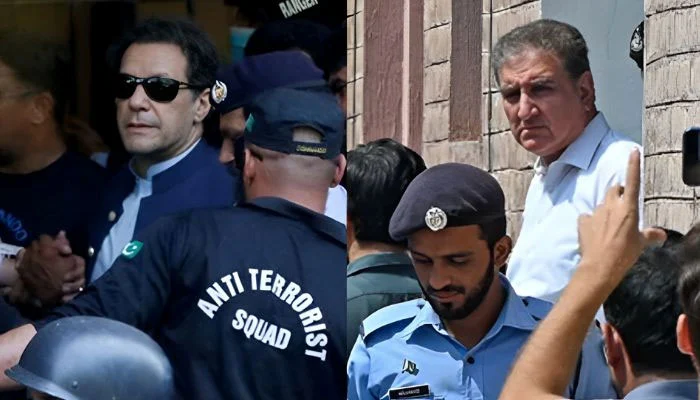The Conservative and Labour leaders got scrappy at times, forcing the host of the ITV event to intervene and urge the pair to “lower your voices”.
Mr Sunak said Labour wanted to increase tax by £2,000 – a claim Mr Starmer dismissed as “absolute garbage”.
And both leaders used the opportunity to set out their personal stories to voters, talking about how their childhood experiences had shaped their political views.
For many analysts, Mr Sunak needed a big performance after a rocky week which had seen abysmal polling for his party and the return of Reform UK leader Nigel Farage to frontline politics.
He came in bullish from the start, haranguing Mr Starmer on tax policy and frequently talking over his opponent and the chair, Julie Etchingham.
Debate topics were queued up by questions from the audience, the first coming from Paula from Huddersfield.
She was struggling with energy and food bills, she said, and had used up all her savings – a situation the charity Citizens Advice says they are dealing with 6,000 queries on every day.
Mr Sunak insisted his plan to grow the economy was starting to work and said Labour would pay for its spending plans with “£2,000 in higher taxes for every working family in our country”.
“Labour will raise your taxes – it’s in their DNA. Your work, your car, your pension – Labour will tax it,” Sunak said.
Throughout the debate he repeated the £2,000 figure.
Conservatives have come up with the number based on how much they say Labour’s spending commitments would cost, dividing this by the number of UK households with at least one person working.
While Mr Sunak suggested the costings had been worked out by impartial civil servants, they are based on assumptions made by politically appointed special advisers.
One of the most substantive policy points of the evening came with Rishi Sunak appearing to suggest he would be willing to pull the UK out of the European Convention on Human Rights (ECHR) if the Rwanda policy did not work.
Mr Sunak said he believed the UK’s plans were” compliant with our international obligations” but he added: “If I am forced to choose between securing our borders and our country’s security or a foreign court I’m going to choose our country’s security every single time.”
Pushing back on this, the Labour leader said the UK would “not pull out of international agreements and international law which is respected the world over”.
He said he wanted the UK to be a “respected player on the world stage, not a pariah”.
Mr Starmer was keen to suggest his opponent was out of touch and living in a “different world”.
Drawing a contrast between his own background and that of the prime minister was something Mr Starmer tried to do throughout, talking about the “anguish” of having the phone cut off after an unpaid bill as a child.
He suggested this was something the prime minister did not have experience with.
A clear divide between the leaders came when they were asked a “yes or no question” – if they had a loved one “on a long waiting list for surgery, would you, if you felt that that was the only way forward, use private healthcare?”
It was a “yes” from Mr Sunak and a “no” from Mr Starmer – with the Labour leader talking about the NHS being in his DNA.
At different points in the debate, both were keen to highlight the role of the UK’s health service in their own backgrounds.
Rishi Sunak’s story of growing up as the son of a GP and a pharmacist will be familiar to many – but one he would have hoped to reach a fresh audience through the debate.
Similarly, Mr Starmer spoke about his wife and mother working for the NHS.
He also spoke about his father being a tool maker and being the first person in his family to go to university.
Both Mr Sunak and Mr Starmer were asked to raise their hands if they would raise income tax, National Insurance or, with the exception of Labour’s policy on private schools, VAT.
Neither raised their hand, prompting questions about how they would pay for their policies.
The debate continued to be heated as the pair explained their parties’ policies on immigration, which has been thrown into the spotlight after the return of Nigel Farage as the leader of Reform UK.
Mr Sunak challenged Sir Keir directly on his plans on immigration, often speaking over both his opponent and the chair, Julie Etchingham.
Sir Keir responded: “We need to smash the gangs that are running this vile trade, making a huge amount of money putting some of the most vulnerable people in boats across the Channel”, to applause from the audience.
Asked about how to cut NHS waiting lists, the audience groaned loudly when Mr Sunak blamed health workers’ strikes for some of the issues – but he then won applause when he added taxes should not rise to fund the NHS.
There were more groans over Mr Sunak’s continued backing for his national service plan when he was asked what the Conservatives were offering the UK’s young people.
Mr Sunak said the plan – that would see every 18-year-old taking part in 25 days of community service and some being selected for a year of military service – could be “transformative”.
Mr Starmer dismissed the idea as “desperate” and said the UK did not need a a “teenage Dad’s Army” but Mr Sunak hit back with “all he can do is sneer at it because you don’t have any ideas”.


